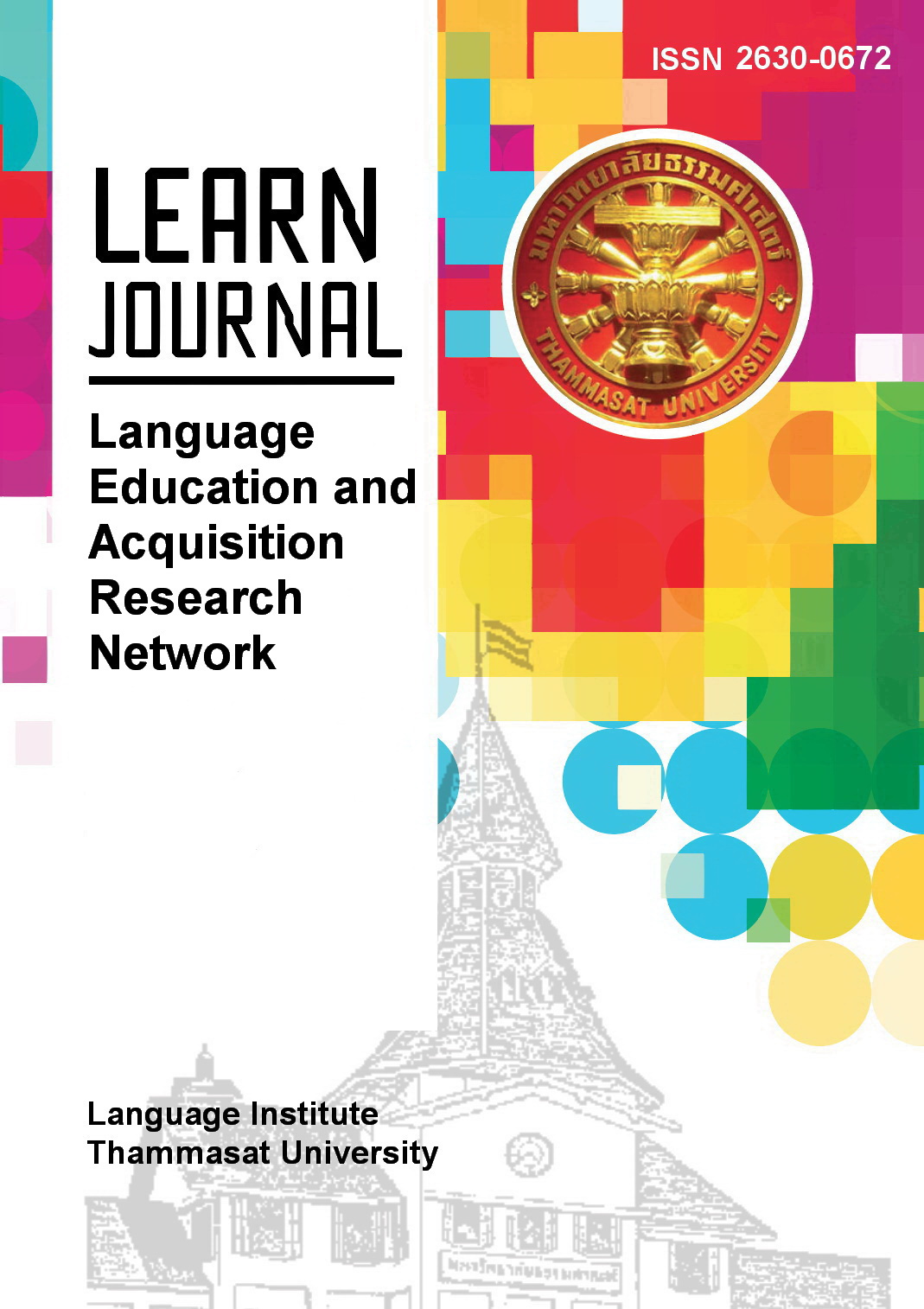Motivation of Thai University Students from Two Disciplinary Backgrounds Using a Hybrid Questionnaire
Main Article Content
Abstract
The increasing global and local demands to improve citizens’ English proficiency have augmented the significance of English education across the entire paradigm. Meanwhile, motivation has been endorsed as one of the pivotal driving forces that propels the success of language learning. This study represents a large-scale motivational study, exploring the role of motivation in learning English among Thai undergraduate students, studying in the disciplines of the sciences and humanities at eight public universities across Thailand. Based on the frameworks by Gardner (1985; 2004) and Dörnyei (2010) and a number of modifications made on their corresponding questionnaires, a hybrid questionnaire eliciting quantitative data was specifically developed to accommodate the context of English language teaching and learning in Thailand. Additionally, a semi-structured interview form was devised to collect qualitative data, complementing the quantitative data. Quantitative data analysis revealed that these two cohorts of students were significantly different as far as the nature of their motivation is concerned. Scrutiny of the interview data demonstrates that both the sciences and humanities students had a common utilitarian goal of employment and professional advancement. However, the humanities students interestingly expressed their aspirations to extend the use of English as a tool to enlarge their cultural repertoire. In light of these results, a number of generalizations could be made, including practical implications for teaching and managing English classrooms of Thai undergraduate students from diverse disciplinary background.


